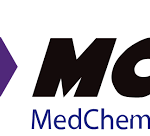Description
Acetyl-ACTH (7-24) (human, bovine, rat) causes a marked decrease of ACTH-evoked corticosterone and aldosterone release[1].—–C107H170N32O21—-[1]M Feuilloley, et al. Structure-activity relationships of monomeric and dimeric synthetic ACTH fragments in perifused frog adrenal slices. J Steroid Biochem. 1990 Apr;35(5):583-92.–1815618-01-9–2240.70—-CC(N[C@@H](CC1=CC=CC=C1)C(N[C@@H](CCCNC(N)=N)C(N[C@H](C(NCC(N[C@@H](CCCCN)C(N2[C@@H](CCC2)C(N[C@@H](C(C)C)C(NCC(N[C@@H](CCCCN)C(N[C@@H](CCCCN)C(N[C@@H](CCCNC(N)=N)C(N[C@@H](CCCNC(N)=N)C(N3[C@@H](CCC3)C(N[C@@H](C(C)C)C(N[C@@H](CCCCN)C(N[C@@H](C(C)C)C(N[C@@H](CC4=CC=C(C=C4)O)C(N5[C@@H](CCC5)C(O)=O)=O)=O)=O)=O)=O)=O)=O)=O)=O)=O)=O)=O)=O)=O)=O)CC6=CNC7=CC=CC=C67)=O)=O)=O–Metabolic Disease; Neurological Disease–10 mM in DMSO–Androgen Receptor—-Vitamin D Related/Nuclear Receptor–Peptides




 Did you check our products for animal nutrition?
Did you check our products for animal nutrition?